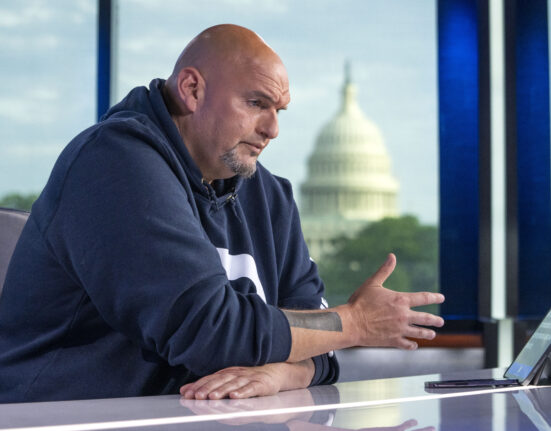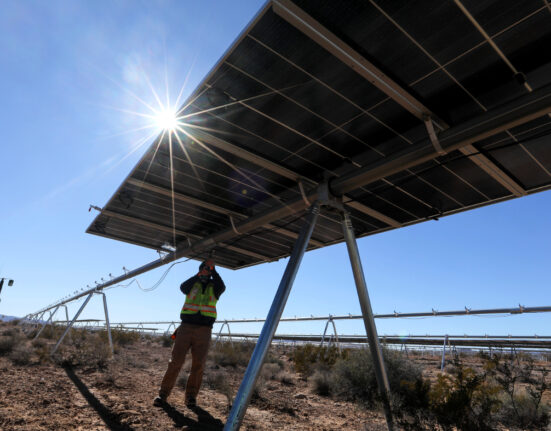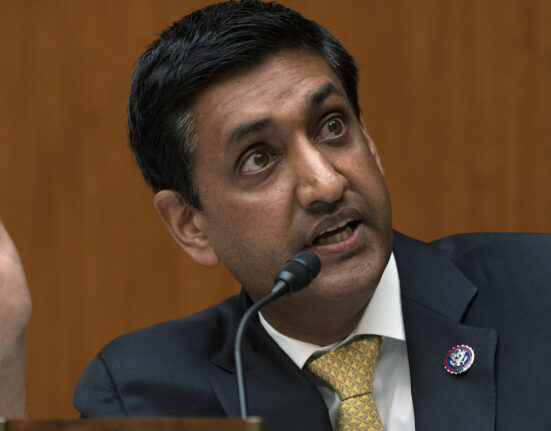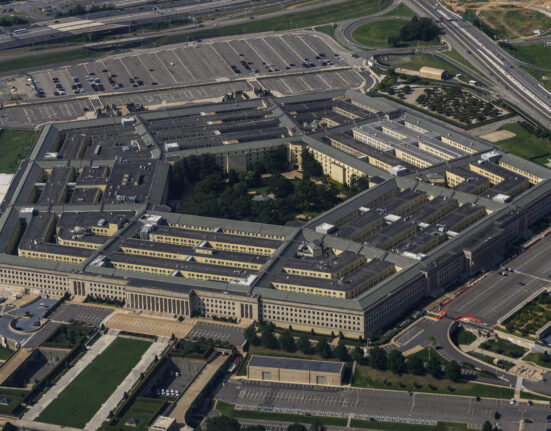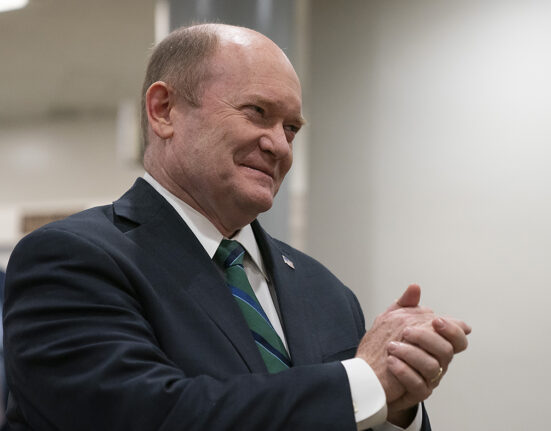Not to upset the near-record number of Americans flying this Memorial Day weekend, but the airplane tossed about by “extreme turbulence” last week was made by Boeing.
“You know things are bad when the general public is getting this knowledgeable about specific plane models,” comedian John Oliver said of Boeing. “It’s pretty clear, something has to change at Boeing.
In the last two months, two outspoken critics of Boeing’s lack of attention to safety have died – one by suicide and the other from a sudden infection.
Their suspicious deaths came after a door had fallen off a Boeing-built plane during an Alaska Airlines flight in January. Boeing paid Alaska Airlines $160 million in compensation last month for the incident.
That life-threatening drama at 30,000 feet took place as Congress was flying past the graveyard of recent crashes to work on reauthorizing the Federal Aviation Administration.
The five-year, $105 billion measure passed this month.
The bill passed this month, days after the Justice Department wrote to a U.S. District Judge that Boeing broke a 2021 deal it made to avoid criminal liability for the fatal crashes for two 737 Max airplanes in 2018 and 2019.
In that deal the company paid $2.5 billion in fines and pledged to improve safety.
Families of people who died in the crashes are scheduled to meet with the Justice Department this week to push for “a satisfactory remedy to Boeing’s ongoing criminal conduct,” according to a statement from Paul Cassell, a lawyer for the families.
The deaths of the two whistleblowers raised eyebrows as Congress heard from a third Boeing whistleblower. He testified that the company was allowing shortcuts to airplane production that increased the risk of planes crashing.
At another hearing on Boeing, held by the Senate Commerce Committee last month, the brother of a woman who died on a Boeing plane that crashed said the company has two faces.
Boeing’s leadership tells employees that “Safety is our number one priority… But what [workers] see is that that’s only true as long as your production milestones are met,” said Javier de Luis.
De Luis’ testimony had added power because he lectures on aeronautics at the Massachusetts Institute of Technology.
But the need for improved safety protocols at Boeing became background noise due to pressure on Congress to keep the FAA running. Several temporary funding bills for the agency had expired. The White House approved a weeklong extension as negotiations over the current bill dragged on.
“This bill does not fully address the many vexing issues that have come to light since a door plug blew out of an Alaska Airlines flight mid-flight,” admitted Sen. Tammy Duckworth [D-Illinois], who chairs the Commerce panel’s aviation subcommittee.
“Congress must look more closely at these issues…,” Duckworth said in remarks on the Senate floor. “But that will take time…we must not delay passage of the FAA reauthorization while we continue our oversight of Boeing.”
The problems at Boeing have been certified as serious. The National Transportation Safety Board identified “gaps in Boeing’s safety journey,” after reporting that the airplane which lost its door plug had left the factor without required bolts to hold the door in place.
But in Congress, Boeing is taking on the look of a company viewed by politicians as belonging in the ‘too-big-to-fail,’ category – an American economic colossus that supplies aircraft to commercial airlines as well as the military.
Boeing’s current escape from accountability in Congress reflects election-year politics.
With a November election looming, the AFL-CIO and it 12.5 million workers pushed the House and Senate to quickly pass the bill. So, too did unions for 67,000 airline pilots, 20,000 air traffic controllers and 50,000 flight attendants.
Having the new legislation deal with concerns about the safety of Boeing’s aircraft fell off the table as the focus shifted to political sugarplums for travelers.
The bill includes steps to improve how refunds are paid to passengers for canceled flights and to prevent added fees on families booking seats together. There is also money for more air traffic controllers to reduce flight delays.
Congress’ attention to the safety problems at Boeing also got waylaid as Congress focused on renovating airports in key congressional districts, along with more technology to prevent runway collisions and improved cockpit recorders.
And the most personal concern for members of Congress and their staff was a provision in the bill to allow airlines to make several long-haul flights to cities west of the Mississippi from the nearby Ronald Reagan Washington National Airport. Currently, the airport, conveniently located near Capitol Hill, is limited to trips under 1,250 miles.
The end result is a promise to deal with Boeing’s safety record later.
President Biden signed the bill earlier this month. But big public fights cannot be avoided over the future of Boeing’s leadership.
Boeing’s top executive, Dave Calhoun, has announced he is resigning by the end of the year. But the investigations subcommittee of the Senate Homeland Security and Governmental Affairs has asked Calhoun to come to Capitol Hill and testify. So far, he has not shown up.
Already, a top adviser to Boeing shareholders wants new leaders because of “significant concerns” that current leadership fosters a culture more focused on profits than safety.
How about a call to “safety-first” former transportation secretaries — Anthony Foxx, Ray LaHood and Rodney Slater?
Juan Williams is an author and a political analyst for Fox News Channel.



